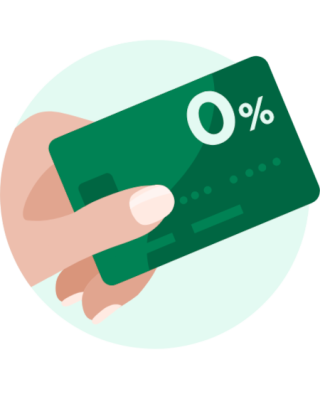

Ellen is a former credit card writer for NerdWallet. She covered personal finance issues for more than 20 years at Bloomberg and Bankrate.com.
Lead Assigning Editor Paul Soucy
Lead Assigning Editor | Credit cards, credit scoring, personal finance
Paul Soucy has led the Credit Cards content team at NerdWallet since 2015 and the Travel Rewards team since 2023. He was an editor with USA Today, The Des Moines Register and the Meredith/Better Homes and Gardens family of magazines for more than 20 years. He also built a successful freelance writing and editing practice with a focus on business and personal finance. He was editor of the USA Today Weekly International Edition for six years and received the highest award from ACES: The Society for Editing. He has a bachelor's degree in journalism and a Master of Business Administration. He lives in Des Moines, Iowa, with his wife, Sarah; his two sons; and a dog named Sam.
Fact CheckedMany or all of the products on this page are from partners who compensate us when you click to or take an action on their website, but this does not influence our evaluations or ratings. Our opinions are our own.
Money's tight this month, and you've just received a couple of blank checks from your credit card company in the mail. You're tempted to take advantage of the offer.
Stop. First, you need to know what you're accepting.
You can usually use these credit card "convenience checks" to transfer a balance from another card or loan, to make a purchase or just to deposit money into your bank account. But the terms of the offer — 0% annual percentage rate periods, ongoing interest rates and fees — may end up costing you money.
"Convenience checks are tied to your credit card account," says Bruce McClary, a spokesman for the National Foundation for Credit Counseling. "It looks like a personal check. You fill it out, sign it and cash it as a cash advance. You can write it to a retailer to purchase things. It's very flexible in how you can use it. That’s the attraction for consumers."
Credit card checks can help consumers if used wisely, McClary says. "If the check is going to be used to pay off an account that is charging a higher interest rate and whose terms are less favorable than the convenience check," it makes sense to use it, he says. "The 0% offers are good. You just need to be very sure of your ability to pay off your transferred balance in the time period."
They can also create financial headaches. "Where [consumers] get into trouble is when they expect they’ll pay off the balance within the 0% time period, but something unexpected happens and they're not able to pay it off," McClary says. "That can produce ugly scenarios, like being charged interest on the full balance, going back to the beginning."
However you use a credit card check, you're tapping the credit line on your credit card and adding to your balance. Here are some questions to ask before you fill out one of these checks. If the answers aren't clear from the documentation that comes with the checks, call your card issuer and ask directly.
Take charge and banish debtSign up with NerdWallet to get a full picture of your spending and personalized recommendations for credit cards that save money on interest.
GET STARTED
Convenience checks often come with a 0% annual percentage rate for a certain amount of time. But this interest-free period might apply only if you use the check to transfer a balance to your card.
Make sure that the 0% APR will also apply if you use a check to make a purchase or a cash deposit into your bank account. Those uses might be considered cash advances. Cash advance APRs can be 20% or higher and usually incur a fee of 4% or 5% of the amount you're borrowing. There's also a limit on how much you can write the check for.
"When used for a cash advance," McClary says, "you're charged the credit card cash-advance interest rate. This is where you have to be very careful, aware of what that means in terms of cost to you."
The interest rate on convenience checks is tricky from the get-go. You might save some interest upfront with the 0% APR — but that can actually end up increasing the interest you pay on purchases.
Here's why. If you pay your balance in full every month, credit cards typically give you an interest-free "grace period" on purchases. This means that when you make a purchase, interest doesn't start accruing on it until after the billing cycle closes and your next payment is due. Depending on when you make a purchase, grace periods can be as long as 50 days.
If you carry a balance on your card from one month to the next, however, you get no grace period, and interest starts accruing on purchases immediately. When you use a convenience check to transfer a balance, you'll have to pay off that entire transferred amount by the next due date, or you'll lose the grace period for purchases. "With some of the checks, you could be hit with interest charges as soon as that balance is put on your account," McClary says.
You won't get hit with interest on purchases if you currently have a 0% APR in place on both balance transfers and purchases. That might be the case if you're still in your introductory 0% period on a newer card and the issuer sends you convenience checks.
The Consumer Financial Protection Bureau recommends that you pay off any balance you transferred at 0% during the interest-free period and that you don’t use the card at all until you've paid off that balance.
Banks typically charge a fee to transfer a balance — 3% to 5% of each amount transferred, with a minimum of $5 to $10, depending on the card. If you’re contemplating a balance transfer, check that the numbers make sense. If you’re transferring a $5,000 balance, for instance, it could cost you $150 to $250. Also, most banks don't allow you to transfer balances from other accounts you have with that bank.
If the amount you're putting on your credit card with a check (plus any balance transfer fee) pushes you over your credit limit, you’re in trouble. When you go over your credit limit using a credit card check, McClary says, "the same things happen as when you go over your credit card limit — penalty fees, penalty interest rates. You have to look at your balance and know how much of your credit line you're using before you use the check."
Just like yogurt, these offers have an expiration date. You have a specific period of time to make a transfer or use the check for a cash advance or to pay for merchandise. The terms of use vary. Sometimes a check written after the date will be declined; sometimes the issuer will charge the regular APR on any check written after the use-by date. So be sure you know the terms.
A credit card check shouldn't hurt your credit scores as long as you manage your credit card responsibly — paying on time and keeping your balance low. "But if you borrow a significant amount, which would change your debt ratio, or max out your credit line, you could send your score in the wrong direction," McClary says.
In addition, he says, "If you’re using it to transfer balances from other accounts, then closing those accounts, you'll have too much activity on your credit report, and that might be detrimental. You could send your credit score into the basement."
Although you won't get a 0% interest rate, taking out a personal loan or a home equity loan or line of credit may be a safer way to get cash. Personal loans have lower interest rates than credit cards, depending on your credit score. Home equity loans also have lower interest rates, and the interest you pay on the loan is tax-deductible, just like mortgage interest.
If you decide to accept the credit card check offer, McClary says, "you have to have a plan for the worst-case scenario. As attractive as the offer is, you have to face the possibility that you might not make it to the finish line. Have a plan for payoff if that were to happen."
If you don't use the checks, make sure they go directly into the shredder.
If you don’t want to be tempted with these offers, or if you simply don’t want them filling your mailbox and shredder, you can opt out. OptOutPrescreen.com is run by the Equifax, Experian and TransUnion credit bureaus and Innovis Data Solutions. Go to www.optoutprescreen.com or call 1-800-5-OPT-OUT.
Online and on the phone, you can opt out of solicitations for credit and insurance offers for five years. You’ll need to fill out personal details, including your Social Security number.
If you want to opt out forever, you can initiate the request online, but you’ll have to fill out and mail in the Permanent Opt-Out Election form, which you get on the website.
About the authorYou’re following Ellen Cannon
Visit your My NerdWallet Settings page to see all the writers you're following.
Ellen Cannon is a former NerdWallet writer covering credit cards. She has been a writer and editor at Bloomberg and Time Inc. See full bio.
On a similar note.

Download the app

Disclaimer: NerdWallet strives to keep its information accurate and up to date. This information may be different than what you see when you visit a financial institution, service provider or specific product's site. All financial products, shopping products and services are presented without warranty. When evaluating offers, please review the financial institution's Terms and Conditions. Pre-qualified offers are not binding. If you find discrepancies with your credit score or information from your credit report, please contact TransUnion® directly.
NerdUp by NerdWallet credit card: NerdWallet is not a bank. Bank services provided by Evolve Bank & Trust, member FDIC. The NerdUp by NerdWallet Credit Card is issued by Evolve Bank & Trust pursuant to a license from MasterCard International Inc.
Impact on your credit may vary, as credit scores are independently determined by credit bureaus based on a number of factors including the financial decisions you make with other financial services organizations.
NerdWallet Compare, Inc. NMLS ID# 1617539
California: California Finance Lender loans arranged pursuant to Department of Financial Protection and Innovation Finance Lenders License #60DBO-74812
Insurance Services offered through NerdWallet Insurance Services, Inc. (CA resident license no.OK92033) Insurance Licenses
NerdWallet™ | 55 Hawthorne St. - 10th Floor, San Francisco, CA 94105